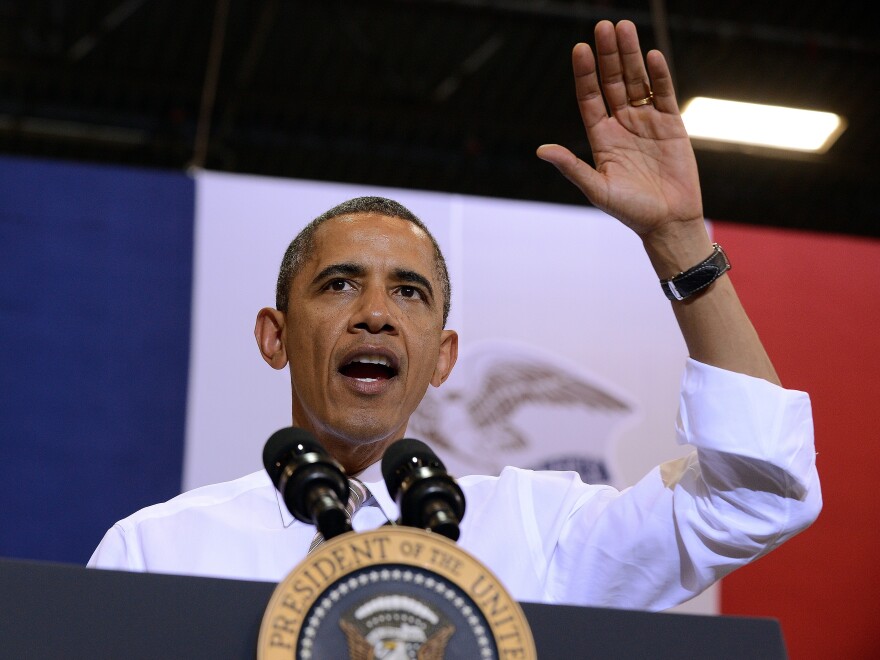Fred Barnes is executive editor ofThe Weekly Standard.
In his State of the Union speech in 2011, President Obama referred to "small business" five times and alluded to it seven more. Progress in America is measured, he said, "by the prospects of a small business owner who dreams of turning a good idea into a thriving enterprise." In this year's address, the mentions were down to three.
But Obama hasn't abandoned the subject. He routinely boasts of having gotten 17 small business tax cuts enacted. And last week being National Small Business Week, the president said he has come up with an array of fresh tax cuts for struggling small business owners.
There are three big problems here. The first is that his 17 tax cuts have had little if any impact on small businesses or the economy. Basically, they failed. Second, his new cuts are much like the earlier ones. They're temporary, narrow, and not what small business owners are asking for, which are fewer regulations and a permanent cut in the personal income tax rate or at least no hike in that rate. Third, they have no chance of being enacted in 2012.
That his 17 tax cuts didn't deliver doesn't deter Obama from bragging about them. A good example is what he calls the "New Hire Tax Credit for Small Businesses." It would "jumpstart new hiring," Obama insists, by offering small firms a 10 percent income tax credit for "hiring new employees or raising the wages and salaries of their existing employees."
Sounds promising, doesn't it? But the credit would be good only in 2012. It resembles the HIRE Act, the acronym for the Hiring Incentives to Restore Employment Act, which offered a payroll tax exemption and a business tax cut of up to $1,000. It, too, was good for one year. The result: It had practically no effect and expired at the end of 2010 with scarcely a whimper of complaint by anyone in Congress or the small business lobby.
Why did it fail? Business owners prefer to take on workers who'll stay around for a while. That means long after Obama's tax breaks expire. And the earlier HIRE Act required them to hire first, start paying wages, and get the tax savings later, assuming they'd be willing to fight their way through a maze of paperwork to qualify. Few were.
What appeal it had was particularly to those who were already hiring. For them, the tax relief was a windfall. By the way, President Carter tried a tax scheme to boost small business hiring in the 1970s. It didn't work either.
Nevertheless, the president told a gathering of small business -owners in mid-May the new legislation would provide an incentive for -business owners to say, "Maybe we hire an extra two people. Maybe we hire an extra three people. Maybe we hire an extra 10 people." Sorry, but given the fate of prior efforts, they're more likely to say, "Hire someone? Perish the thought."
Of Obama's 17 earlier tax cuts, several were more valuable to larger businesses than the very small. The five-year carryback of "net operating losses" and "general business credits" fall into that category. Plus, there were three separate measures for "bonus depreciation," which weren't terribly helpful to most small businesses but were a useful tax write-off for larger companies. Even for them, the bonuses were gone after a year.
Not to get in the weeds, but the 17 included tax relief limited to a fraction of the six million small businesses in America. In this category was "Limitations on Penalties for Errors in Tax Reporting That Disproportionately Affect Small Business." Not a huge job creator, that one.
The most highly touted item was the health insurance tax credit for small businesses, passed in 2010 as part of Obamacare. It would aid firms with fewer than 25 employees and average wages of less than $50,000 by paying 35 percent of their cost of premiums now and 50 percent starting in 2014.
A political purpose was involved. When Obamacare was being debated, the tax relief was used as an argument to persuade small business owners to support the bill. Speaking to a group of them in 2009, the president said, "It's being written with the interests of Americans like you and your employees in mind."
But of the four million small businesses that White House economists estimated to be eligible, only 170,300 have signed up. In studying the impact of the tax cut, the Government Accountability Office said "most very small employers" who don't provide health benefits found it "was not large enough to incentivize employers to begin offering insurance." Also, "complex rules limited claims," and "the time needed to calculate the credit deterred claims." No surprise there. That's the way government works.
Bureaucratic rulemaking and delay don't dampen Obama's enthusiasm for government. When he talked to small business owners in May, he spoke glowingly about the Small Business Administration. "Sometimes private financing isn't willing to take a chance on a couple of young guys who have an idea about starting a great hoagie shop," he said.
True, but Obama doesn't seem to recognize that companies in need of SBA loans have a common trait: They aren't a good bet to succeed. "When you've got a great service or a great product and people are willing to work really hard, then action by government and the SBA can help . . . get them started," he said.
Yes, it can. But it's not needed when a business has a "great service or a great product." Those firms are likely to attract private investment.
Targeted and temporary are catchwords for Obama's tax cuts. Across-the-board and permanent are those for the cuts small businesses want and need. One kind doesn't work, the other does. Obama may not know the difference.
Copyright 2021 The Weekly Standard. To see more, visit . 9(MDA4NjIwNTkwMDEzMjI4NDY0MjY4ZTBlNA004))


